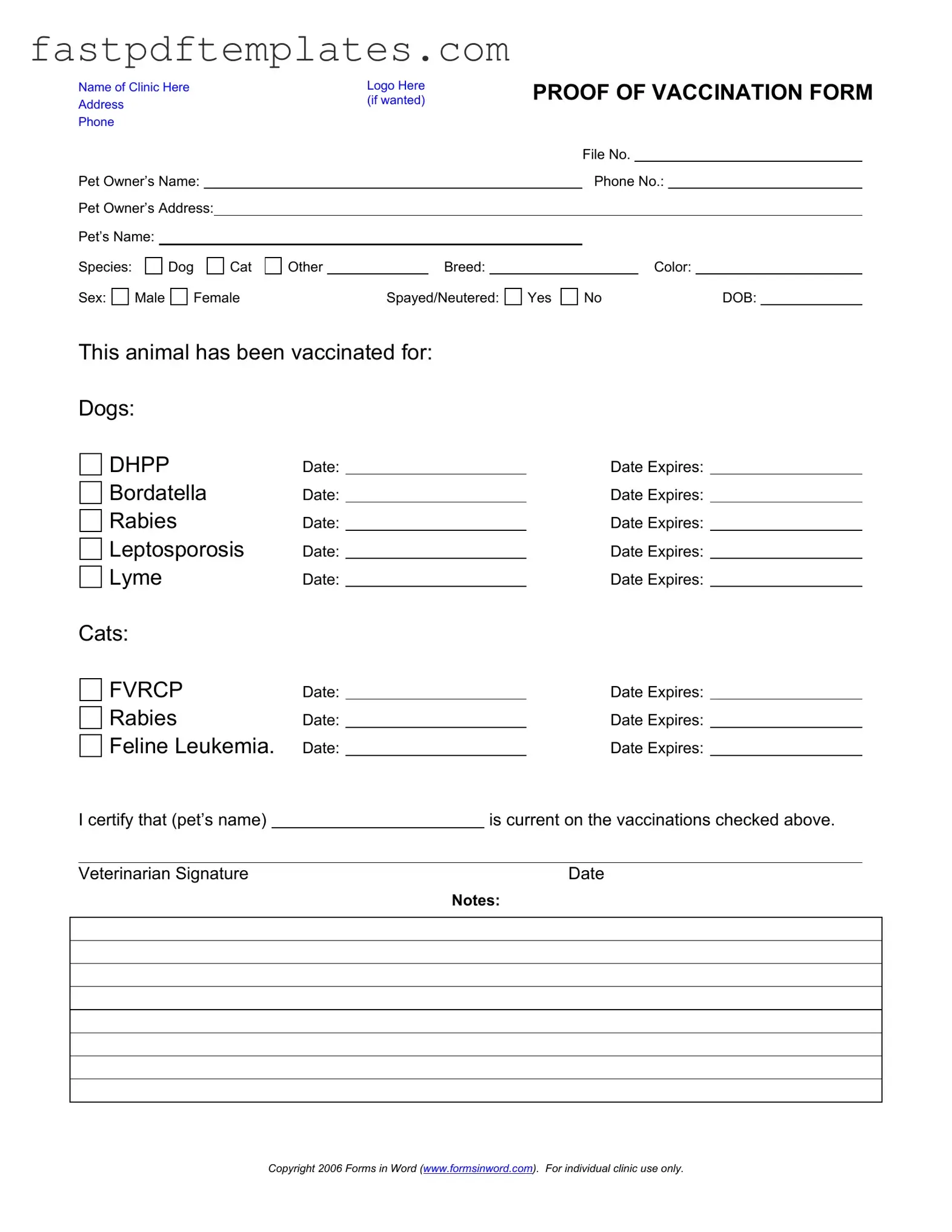Blank Proof Of Vaccination Dog Form
The Proof of Vaccination Dog form serves as an essential document that verifies a dog's vaccination status. This form includes important details such as the pet owner's information, the dog's breed and sex, and a list of vaccinations received along with their expiration dates. Ensuring that this form is completed accurately helps maintain the health and safety of pets within the community.
Access Document

Blank Proof Of Vaccination Dog Form
Access Document
Your form still needs completion
Complete your Proof Of Vaccination Dog online and download the final PDF.
Access Document
or
Click for PDF Form

